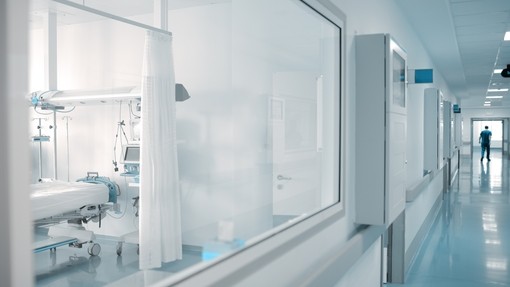Common Issues Encountered in GP Claims

Details
Clinical negligence claims against GPs are increasingly common, with misdiagnosis and inadequate referral being the issues most likely to result in complaints progressing to litigation. In this article (originally published in April 2022), our Senior Associate Stuart Motchman outlines some of the issues commonly encountered in claims against GPs.
Key elements encountered in GP claims
As an initial point, it is always important to consider the ‘index of suspicion’ (see the case of Ganz -v- Childs [2011] EWHC 13 (QB)) regarding the risks the court will consider in not following up on suspicions. This is particularly important where a patient is exposed to a potentially severe risk, which could have been avoided with a relatively straightforward precaution.
Before the consultation
It is important to check the previous notes (see the case of JAH -v- Burne [2018] EWHC 3461 (QB)) particularly regarding any recent attendances with other clinicians or at A&E.
History taking
The use of open and closed questions is helpful, as is the use of consultation models as a learning aid for development. It is also important to clarify patient responses and to identify any red flag symptoms.
Examination
As above, identifying red flags is important and is demonstrated in the case of Shaw -v- Stead [2019] EWHC 520 (QB) where the High Court held a GP was in breach of duty for failing to identify warning signs of cauda equina syndrome.
Investigations
It is important to make sure tests are appropriate to avoid delay. When investigating claims we consider local mechanisms for further investigations to look at whether there will be a delay due to local waiting times. We also look at systems and timescales for receiving and reviewing results.
Diagnosis
A differential diagnosis and using time as a diagnostic tool are of course both important. Factors are the degree of risk faced by the patient, and the seriousness of the consequences of the risk should it materialise. Follow-up is important, particularly where alternative diagnosis is equally likely. Litigated cases can be highly fact sensitive so making a diagnosis too slowly or too quickly can both cause issues. Concurrent and lesser complaints from patients may, of course, mask more serious concerns.
Management and treatment
Informed consent and discussing the material risks and alternatives is a key consideration. Communication failures can occur such as failure to inform a patient about the nature of their condition, failure to provide proper guidance and advice, or failure to contact a patient at all. There is a risk of systems failings, for example in communicating with other clinical professionals or practice staff. The range of possible errors in treatment is very wide and can include lack of knowledge of the dose, administration, or known interactions of medications, inadequate risk-benefit analysis, and inadequate monitoring of treatment or conditions.
Most consent in general practice is implied, ie agreement can reasonably be inferred from patient behaviour and conduct. This depends though upon patients appreciating the medical context of what is proposed, and relevant up-to-date information needs to be given to patients. Gaining express consent prior to a procedure about which a patient is unsure is sensible in order to record that a decision has been made. If treatment is not completed a patient should be advised so they understand the importance of obtaining further treatment and the dangers involved in failing to do so.
Referral
Patients should be made aware of their capacity to refuse. If a patient refuses, there is a need to make it clear in the notes the detail of the advice given and the reason for refusal and for this to be recorded as clearly as possible. There can be cases where patients have declined referral for cancer investigations where they were not aware of the possibility of cancer, or that the investigation is to exclude cancer. It may be appropriate to discuss the referral with the hospital and it is important to consider whether an emergency, urgent, or routine referral is appropriate. Safety-netting is key to check patient concerns are dealt with, so a patient knows when to call again or come back and/or when to go to hospital. It is important to also ensure the patient is aware of the referral so they can follow up.
Record keeping
Documenting both positive and negative findings is very helpful. In investigating a claim, we also investigate computer systems to establish, for example, the views clinicians have on screen compared to print views/versions to understand what would have been seen at a relevant consultation. Audit trails, appointment books and where records are held are also important. Record keeping is of crucial importance in litigated cases which are often fact specific. Practice meetings and serious incident reports, appraisals, reflections, complaints, training notes/emails are all potentially disclosable and important evidence.
Remote consultations
Remote consultations are gaining prominence but there are risks with these consultations. These can be minimised by getting familiar with the technology and focusing on communication as this will overcome the potential additional barriers of remote consultations. It is also important to check the notes particularly if unfamiliar with the patient.
An important consideration is whether a face-to-face consultation is needed, for example, so vital signs can be assessed. Has consent also been appropriately obtained for the examination, is a chaperone needed, and can this be arranged remotely? It is important to establish whether a serious diagnosis can be excluded. Safety-netting advice is very important as the patient is not being physically examined. If required, a face-to-face appointment should be arranged within a suitable timescale. Documenting the key points of the discussion will assist with any potential uncertainty.
Conclusion
The above provides a very brief overview of some of the common issues encountered in defending clinical negligence claims against general practitioners.
For further information about defending clinical negligence claims, please contact the author, Stuart Motchman.
Our specialist primary care team provides support to GPs, GP practices, PCNs and federations on a range of issues affecting general practice. For advice on: partnership matters; NHS contracting and regulations; CQC registration queries; primary care estate; practice, PCN and federation governance; employment and HR issues; mergers; and incorporation of practices and PCNs, please get in touch with Alison Oliver







